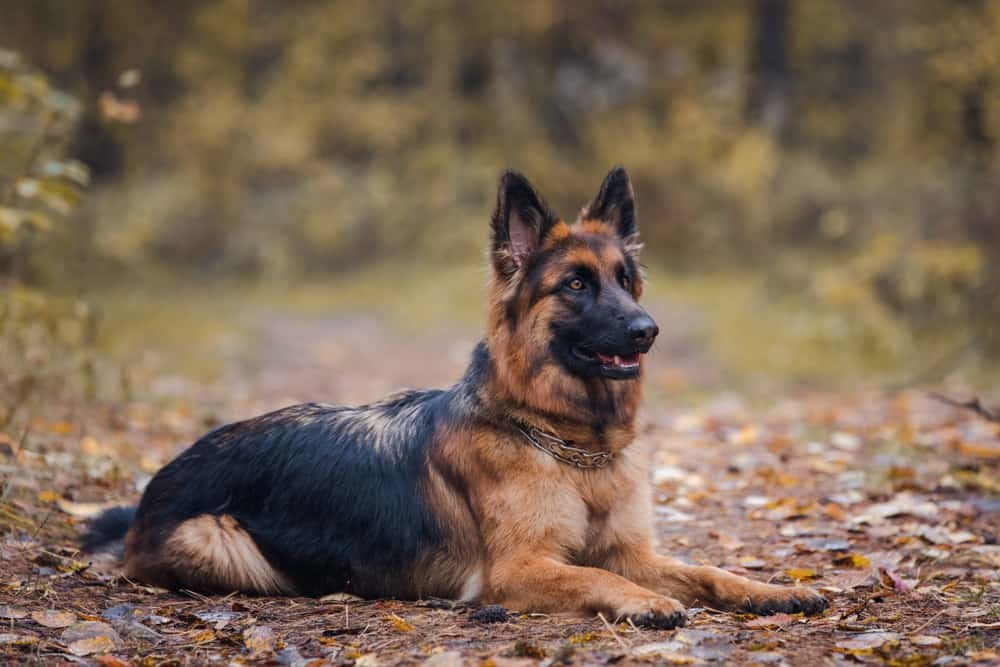The German Shepherd breed was developed in Germany in the late 1800s. The first German shepherd, Horand von Grafrath, was bred by Captain Max von Stephanitz in 1899. The German shepherd quickly became one of the most popular dog breeds in the world.
German shepherds are a working breed of dog, originally bred to herd sheep. They’re still used for this purpose in some parts of the world, but they also make excellent police and military dogs, service dogs and family pets.
The GSD has a sturdy, muscular build and a large, square head. There are three varieties of the German Shepherd Dog: the show-lines, working-lines and crossbreeds. The show-line dogs are bred for their looks and to conform to the breed standard, while working-lines are bred for their athleticism and obedience. Crossbreeds are a mix of the two.

Table of Contents
1. Life Expectancy
The average lifespan of a German shepherd is 9-13 years.
2. Size and Weight
Male German shepherds typically weigh between 66 and 88 pounds (30-40 kg), while females usually weigh between 49 and 71 pounds (22-32 kg). They stand 22-26 inches (56-66 cm) tall at the shoulder.
3. Temperament:

German shepherds are loyal, obedient and protective dogs. They’re also intelligent and trainable, but they can be stubborn at times. German shepherds need a lot of exercise and stimulation, or they can become bored and destructive.
German Shepherds will not listen if they sense that you’re not in charge. It is essential to be the leader of the pack with this breed. This is not a breed that will be happy living in an apartment; they need a backyard to run around in.
4. Health Issues:
German shepherds are generally healthy dogs, but like all breeds, they’re prone to certain health conditions. These include hip and elbow dysplasia, bloat, diabetes and allergies. German shepherds also have a higher than average incidence of deafness and blindness.
If you’re thinking of getting a German shepherd, be sure to do your research and find a reputable breeder. With the right care and training, your German shepherd will be a loyal and loving companion for many years to come.
5. Diet and Nutrition for German Shepherd
The German shepherd is a large breed of dog, so it’s important to feed them a diet that meets their nutritional needs. Adult German shepherds should be fed a high-quality dry food formulated for large breeds. Puppies and young dogs will need a higher protein diet to support their growing bodies.
6. Exercise Needs of German Shepherd
German shepherds are a working breed of dog, so they have high exercise needs. A daily walk or run is a good start, but German shepherds also need plenty of opportunities to play and run off-leash. If they don’t get enough exercise, they can become bored and destructive.
7. Training Needs of German Shepherd
German shepherds are intelligent dogs that are quick to learn. They’re also very obedient, which makes them easy to train. However, they can be stubborn at times, so it’s important to be consistent with training. German shepherds need both obedience training and socialization from a young age.
8. Tips for Living With German Shepherd
Here are a few tips for living with a German shepherd:
- Provide plenty of opportunities for exercise, including walks, runs and off-leash playtime.
- Be consistent with training and socialization.
- German shepherds are large dogs, so be sure to have plenty of space for them to run and play.
- Feed a high-quality diet formulated for large breeds.
- provide plenty of chew toys and bones to keep your dog occupied.
With the right care and training, your German shepherd will be a loyal and loving companion for many years to come.
Read Also: What you need to know before Getting a Doberman





